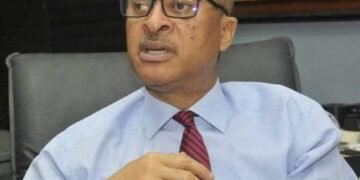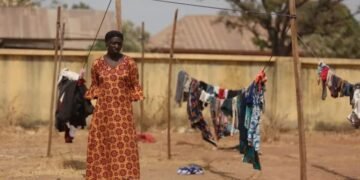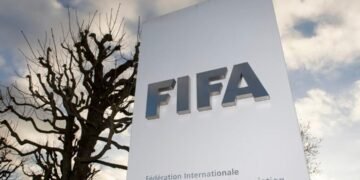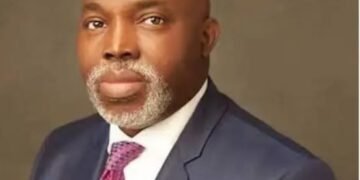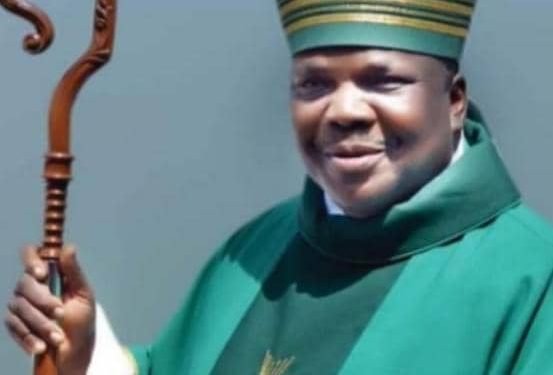The Pan African Committee for Social Communications (CEPACS) has slated November 18 to 21, 2023 to fundamentally mark its 50th anniversary with an assembly of communication experts and Catholic Bishops across the African Continent. The Assembly will feature Dr. Paolo Ruffini, Prefect for the Dicastery for Communications, Vatican as Keynote Speaker in Lagos, Nigeria. CEPACS is African region’s arm of the Catholic Church that handles all matters concerning the activities in the realm of media in Africa and Madagascar – press, radio, television, video, traditional, social media and a host of other new forms of media.
NETA NWOSU, Editor, chats with MOST REV. (DR.) EMMANUEL ADETOYESE BADEJO, President of CEPACS, Member of the Dicastery for Communication and Bishop of Oyo Diocese, Nigeria on the establishment of CEPACS 50 years ago, its journey so far and future agenda as well as the two-day event designed to celebrate its golden anniversary.
Please tell us about the forthcoming 50th anniversary celebration of CEPACS to be hosted by Nigeria.
First of all, I think it’s important to let people know that CEPACS which is an acronym for Pan African Episcopal Committee for Social Communication is a French acronym. It’s the Bishops’ Committee set up by the Symposium of Episcopal Conference for Africa and Madagascar (SECAM). It is that committee that looks after all matters concerning communication and media all over Africa. Right after the Second Vatican Council and the communication document that came out of the Vatican II’s 1963 decree Inter Mirifica, particularly, the doctoral document called Communio et Progressio, which is the pastoral instruction of the Roman Catholic Church, issued by the Pontifical Council for Social Communications on May 23, 1971, the Bishops of Africa met in Ibadan, Nigeria, and they decided to pay a lot more attention to the use of the communication media in the apostolate of the Church.
That meeting was held at Ibadan in 1973. That was where CEPACS was established as a committee of Bishops that will help SECAM deal with issues that concern communication, promote the use of the communications media, promote the training of professionals of communication all over Africa, and also to support them spiritually in the work that they do, and give the voice of the Church in Africa in matters that concern media and communication. Now, from 1973 to this year is 50 years. So, the Bishops decided to celebrate the golden jubilee of the establishment of CEPACS. Fortunately, the Bishops of SECAM, through the Planning Committee of the symposium decided to come back to Nigeria for that celebration, and we are happy about that. That is how Lagos was chosen. One of the reasons Lagos was selected is that it’s also the location of probably Africa’s biggest and most dynamic media establishment, which is the Lumen Christi Satellite Television.
So, this Assembly in commemoration of the anniversary will hold between November 18 and 21, 2023. On November 19, 2023, we shall have the opening Mass at the Holy Cross Cathedral at 10. 30a.m, immediately followed by reception and opening ceremony at the premises of the Cathedral and Lumen Christi Television Network, while the Assembly will hold the next day, November 20, 2023. The Assembly will witness the presence of the Prefect of the Dicastery for Communications in Rome, Dr. Paolo Ruffini and other dignitaries as well. Many Bishops, especially the Bishops who represent the regions of SECAM will also be in attendance. SECAM works through eight different regions in which the countries of Africa have been configured for better management and operation. We thank the Archbishop of the Metropolitan See of Lagos, Most Rev. (Dr.) Alfred Adewale Martins who has welcomed this on behalf of the Catholic Bishops’ Conference of Nigeria. The theme of the assembly is “CEPACS AT 50: Towards promoting a Synodal Church in Africa through social communication.” This is in respect to the ongoing Synod in Africa, the purpose of which is to find an easier means for every segment of the Church to participate in the life of the Church.
That every segment be given access, be given voice, and be given a place and recognition in the affairs of the Church, right of doing the work of evangelisation, the work of charity and so on and so forth. Most importantly, that every segment of the Church be given the attention it requires to attain holiness, and eventually, to attain salvation. It will also host different important segments of the media through their representatives. And I mean traditional media; the print media, the broadcast media and including even the digital media; the new media of our day, hoping that bringing them all together will help CEPACS to chart a new course for the future in collaboration with the Dicastery of social communications in the Vatican. We are happy about this and we are praying that we have a successful assembly, and that this will be a new way of thriving of the mission apostolate in the Church from all over Africa and Madagascar.
In 1973 when CEPACS was formed by SECAM for the Church in Africa, it was given a mandate of promoting the use of modern means of mass communication as tools of evangelisation in the African Church. How do you think CEPACS has realised this mandate so far?
Well, CEPACS being a Committee of Bishops has the job of coordinating and animating communication activities and initiatives all over Africa. And in many ways, CEPACS is therefore like the salt in your cooking. The salt is often not seen, but the impact is felt everywhere. What this means is that in principle, all the developments in communication that we see all over Africa today; be it in establishment of communication television, establishment of formation centres for communications, the training of personnel in communications and media for the Church, and the activities that relate to public relations and production in the Church, all actually come from the work that CEPACS has done over the years.
This also includes the relationship that the Church in Africa has with media organisations all over the world; organisations like Radio Vatican, organisations like Pontifical Council for Social Communications which has become CASPRI for communications, organisations like the African Press Organisation which is one of the biggest publicity and public relations outfit from Africa, owned by an African, but which operates internationally. That outfit at the moment is offering training services and publicity services for the Church in Africa as part of its own contribution to the development of the Church and evangelisation in Africa. Now, CEPACS works in all these areas. CEPACS also helps bring to the grassroots as much as possible the teachings of the Church on the communications beat, the teachings of the Church on the modern media, the teachings of the Church on what the lives of the professionals of media ought to be, what their role, contribution ought to be.
And CEPACS also helps to emphasise the importance of the accompaniment of these communication professionals even in their own private life because what happens in their private lives; their family, their daily activities have an impact on the work that they do in reporting news, in reporting events in the Church. So, there are so many ways in which CEPACS has contributed in every establishment of communications in the Church or every training programme, or even the professionals that have been trained in the Church, owe something to what CEPACS is doing. That is why it is important that everybody takes interest in this assembly which is organised to celebrate the 50th anniversary of CEPACS, so that together, the representatives of the different segments of media that work in the Church, we can all deliberate together on the way forward and how to chart that course together for a Synodal Church, a Church that cares for every segment, everybody, without leaving anyone behind.















